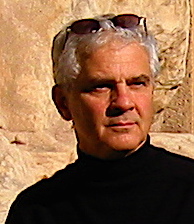A Quote by Barack Obama
Since 1981, after our nations severed diplomatic relations, we've worked through a international tribunal to resolve various claims between our countries. The United States and Iran are now settling a long-standing Iranian government claim against the United States government. Iran will be returned its own funds, including appropriate interest but much less than the amount Iran sought. With the nuclear deal done, prisoners released, the time was right to resolve this dispute as well.
Quote Topics
After
Against
Amount
Appropriate
Between
Claim
Claims
Countries
Deal
Diplomatic
Diplomatic Relations
Dispute
Done
Funds
Government
Including
Interest
International
Iran
Iranian
Less
Long
Much
Nations
Now
Nuclear
Our
Own
Prisoners
Relations
Released
Resolve
Returned
Right
Settling
Since
Sought
Standing
States
Than
Through
Time
Tribunal
United
United States
United States Government
Various
Well
Will
Worked
Related Quotes
We often forget that Iran has a long tradition and history with the United States. Iranians have been coming to the United States as students for decades. American businessmen were in Iran developing the oil fields. ...There was an American financial advisor to the Iranian government in the early part of the century.
Even as we implement the nuclear deal and welcome our Americans home, we recognize that there remain about differences between the United States and Iran. We remain steadfast in opposing Iran's destabilizing behavior elsewhere, including its against Israel and our Gulf partners and its support for violent proxies in places like Syria and Yemen.
Iran is an ancient land, home to a proud culture with a rich heritage of learning and progress. The future of Iran will be decided by the people of Iran. Right now, the Iranian people are struggling with difficult questions about how to build a modern 21st century society that is at once Muslim, prosperous, and free. There is a long history of friendship between the American people and the people of Iran. As Iran's people move towards a future defined by greater freedom, greater tolerance, they will have no better friend than the United States of America.
In the United States, Iran is nothing but a whipping-boy. Few Americans have any real use for Iran. Most of us, what we know and remember about Iran are things like the hostage crisis in 1980, or they think about the Iranian attacks in Lebanon, or on the Khobar Towers. So you don't get a whole lot of political mileage in the United States by going out and advocating better relations with the Iranians.
The issue has two dimensions. One is the legal dimension and the other one is the issue at the realpolitik. [In the] legal realm, we believe in equal rights for all people in all nations. If Israel, the United States, Russia, Pakistan, other countries, China, have the right to have a nuclear program and nuclear bomb, Iran, too, must have that same right. Now, at the realm of realpolitik, because there is a global consensus against Iran, and because there are all manner of dangers facing Iran, I am opposed to this program.
I do believe that the very tense relationship between the United States and Iran presents a challenge to the United States. But to discuss Iran as that type of a threat I find somewhat unconvincing, mindful of the fact that Iran actually doesn't have those military capabilities that would be needed to refer to it as that type of threat.
In the Islamic world, the U.S. is seen in two quite different ways. One view recognizes what an extraordinary country the U.S. is.The other view is of the official United States, the United States of armies and interventions. The United States that in 1953 overthrew the nationalist government of Mossadegh in Iran and brought back the shah. The United States that has been involved first in the Gulf War and then in the tremendously damaging sanctions against Iraqi civilians. The United States that is the supporter of Israel against the Palestinians.
Iran did not talk to the United States for 35 years. And now we are talking. And I believe these talks are useful. But they haven't produced the intended results. We have not seen an end to the hostility that has been exhibited in the United States against Iran. And I believe it is important that we see some of that.
Iran's Supreme Court has issued a fatwa against the development of nuclear weapons. President [Hassan] Rouhani has indicated Iran will never develop nuclear weapons. I've made clear that we respect the right of the Iranian people to access peaceful nuclear energy in the context of Iran meeting its obligations.




























